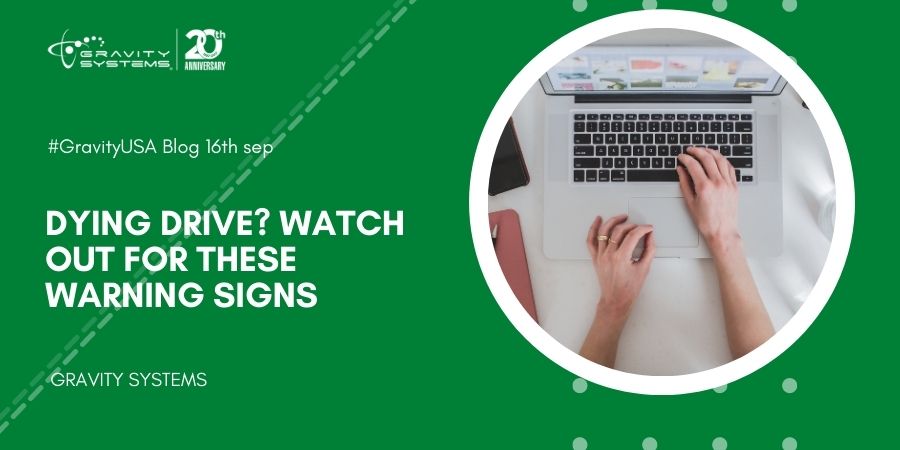Few technical problems can cause as much irritation as a failing internal or external drive. Even if your team members have had the foresight to maintain regular data backups to other devices, the unexpected loss of a drive can stop them in their tracks while they retrieve those backups and pull that data onto another, hopefully more robust drive. Fortunately, certain warning signals can alert you to possible imminent drive failure. Here are some telltale symptoms to watch for, courtesy of your Austin tech support experts at Gravity Systems.
.jpg?width=900&name=Cushings%20Syndrome-%20Causes,%20Diagnosis,%20Treatment%20(9).jpg)
Strange noises - Hard drives often make strange noises when they start to go bad. If you’re hearing humming, buzzing, or clicking noises coming from your computer or an attached hard drive, run an immediate backup and make plans to replace the drive causing the racket. Bear in mind that solid-state drives (SSDs) won’t give you any audible warning signs before they die.
Crashes and shutdowns - If your workstation or server keeps crashing or shutting itself down, the drive may be getting ready to die. Frequent programs shutdowns can indicate the same outcome, whether you’re using a hard drive or an SSD.
Read-only messages - the lifespan of an SSD or flash drive is dictated mainly by the total number of write cycles it can handle. If your SSD has reached the end of its useful life, you may start getting read-only messages when you try to write to it. Take this as your cue to replace the drive.
Sluggish performance - Even if you’re not noticing any of the symptoms mentioned above, sluggish performance might still warn you of an imminent drive failure. Bad blocks and other accumulated issues can make your drive take forever to boot up, access data, or write to files.
Need to troubleshoot a drive problem or replace dead hardware? Contact us!

_NO_BCS_bigger_weird_green_clear.png?width=100&name=for-website_large(save-at-500-tall)_NO_BCS_bigger_weird_green_clear.png)


